Photo

Real-Life Heroes in Ethiopia
Recurrent drought and flooding are common due to weather extremes in parts of Ethiopia. As a result, chronic food insecurity, displacement and various water-related diseases have dominated the humanitarian landscape of the country for decades. Government workers, humanitarian partners and host communities have always been at the forefront, supporting people in dire need be it delivering relief food supplies, screening children for malnutrition, or providing emergency health, nutrition, water, education, protection and livelihood support. During the day or late at night, they travel through the most arid places, the wettest land and difficult terrain to get to where the needy people are. Their commitment, passion and generous hearts is an inspiration for us all. These are the #RealLifeHeroes we want to thank today as we celebrate World Humanitarian Day.
1 note
·
View note
Photo
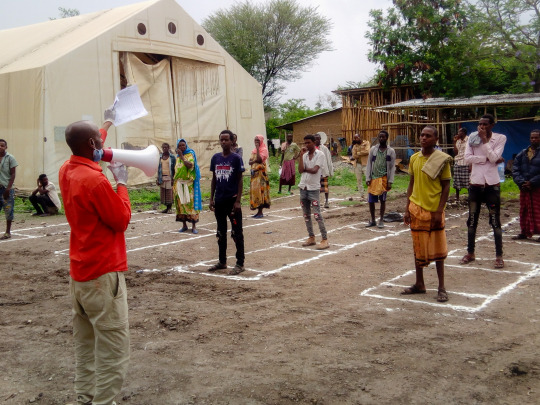

Ayele Getahun, Nutrition Adviser, CARE, Addis Ababa
Ayele Getahun (40) works as a Nutrition Adviser for CARE Ethiopia. Alongside working with relief food distribution activities across the country, Ayele is also engaged in COVID-19 prevention and control efforts to help flatten the curve.
0 notes
Photo
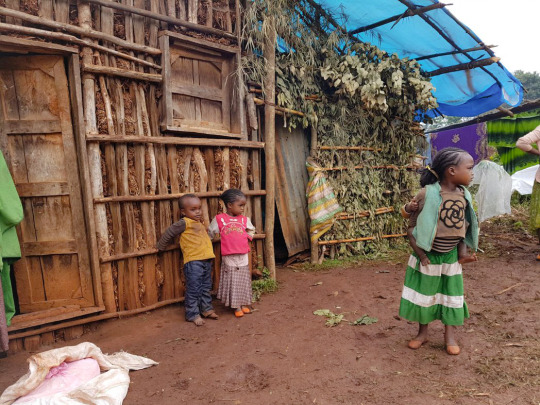
Anonymous
A host family on taking in internally displaced people:
“When they fled inter-communal conflict in their home town, they came empty-handed, they had lost all their belongings. The whole neighborhood mobilized to support them. I gave a house to one displaced family. We have been sharing everything for over a year now. Both husband and wife support me in farming and in my daily activities, including sowing, weeding and chopping firewood. We have been helping each other. I have also adopted one displaced young girl whom I found wandering on the street. In addition to sharing my food, I give them words of encouragement to give them hope.”
1 note
·
View note
Photo
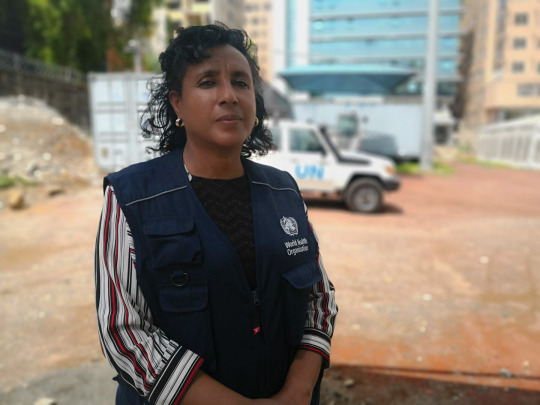
Berhane Beyene, World Health Organization, Addis Ababa
Berhane Beyene is one of the many World Health Organization (WHO) workers who have been deployed to the COVID-19 outbreak preparedness and response under the WHO Incident Management System.
“I feel proud of being able to do my part to serve my country in fighting against COVID-19.” Having worked on several viral pathogens for more than 20 years, Berhane was assigned by WHO to coordinate the laboratory pillar, mainly supporting the establishment and expansion of COVID-19 testing laboratories throughout the country. In her assignment, she and the National Lab Team, also make sure that COVID-19 testing is conducted accurately and regularly at the Ethiopian Public Health Institute (EPHI).
“I am a witness of the expansion of COVID-19 laboratory testing capacity at both the national level and regional public health institutes, regional laboratories and university molecular laboratories throughout the country to reach all communities. This has been a tremendous achievement of EPHI, with the strong support of WHO and collaboration with other partners,” said Berhane.
Berhane Beyene calls upon everyone to do their best in the fight against this pandemic: “Everybody has to be a warrior against this disease and all of us have to do our own part by adhering to the preventive measures, which are very critical especially for developing countries with limited or fragile health systems.”
0 notes
Photo

Ayantu Desta, civil servant, Nedjo, Western Ethiopia
Ayantu Desta, a civil servant in Nedjo town, Western Ethiopia has been a great help to several thousands of internally displaced people (IDPs).
When IDPs who fled from Benishangul Gumuz region came seeking safety in Nedjo in September 2019, Ayantu sheltered them near her home and provided them with food and clothing although she herself had limited resources. She also welcomed more than 3,000 IDPs to fetch water from her tap and covered the related high bills for more than six months.
She also supported and covered the medical costs of an IDP woman who gave birth in the temporary shelter she was occupying. “I am a mother. I understand her pain,” says Ayantu.
1 note
·
View note
Photo
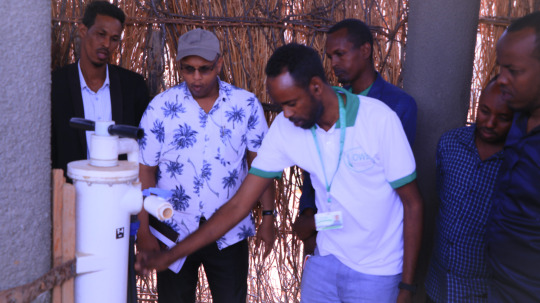

Mohamoud Mohammed, WaSH Adviser, Ogaden Welfare and Development Association, Gode, Somali region
Now working as a WaSH adviser, Mohamoud Mohammed (34) has always wanted to contribute to humanitarian responses. Ethiopia being a country that persistently faces drought due to increasingly delayed rains, he finds the construction of water supplies the most rewarding part of his work.
In fact, the most memorable moment as a humanitarian was when working on the construction of a water supply system along the Shebelle river. The beneficiaries of this project used to be at risk of facing crocodiles when fetching for water at the river up until the water supply system had been constructed. Unfortunately, this year’s flash floods have damaged the system, forcing the community to return to the river to fetch for water until the water supply system could be repaired. Sad news came along 2 weeks after the system had been damaged, when a pregnant mother of four was attacked by a crocodile. Unfortunately, she did not survive. Although this is one of the most terrible memories, Mohamoud continues to engage in humanitarian work, specifically in WaSH projects in order to protect the vulnerable from danger.
He calls on NGOs, donors and Governments to drive for progress in the access to clean water.
0 notes
Photo
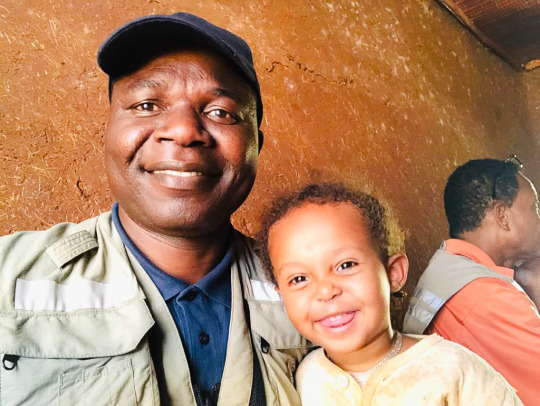
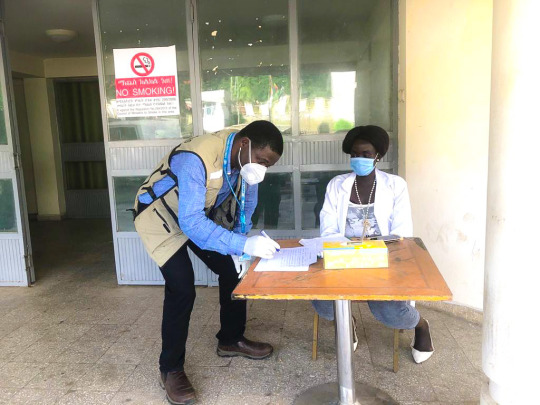

Clever Maputseni, Head of Sub-Office for Western Ethiopia, UNOCHA, Nekemte, Oromia region
Driven by his compassionate disposition, Clever Maputseni (46) has always had a passion for communication in the development sector as well as people-centered grassroots initiatives. He has turned his passion into his career and now works for UNOCHA Ethiopia as Head of Sub-Office for Western Ethiopia in Nekemte.
Despite the challenging aspects of securing sufficient resources to meet the humanitarian needs of the people in need, he says that the most rewarding part of his work is when children recognize him and smile. In this, he finds reason in continuing to work as a humanitarian, aiming for more smiles on children’s faces; knowing that the little acts of kindness he can do, can always make a difference in the lives of the vulnerable and his own soul.
He calls for all authorities and other stakeholders to protect frontline humanitarian workers in a coordinated manner.
0 notes
Photo

Mohamud Abdinour Sayid, DRMB, Jijiga, Somali region
Having witnessed the lives of vulnerable communities during his student life, Mohamud Abdinour Sayid (30) now works as a Response Coordinator for the Early Warning and Response Directorate at the Disaster Risk Management Bureau (DRMB) in Jijiga, Somali region. His daily work at the DRMB consists in helping people affected by both man-made and natural disasters, to which the DRMB responds with food and non-food item distributions, emergency shelter as well as water trucking during the dry season. Working with internally displaced people in Qoloji camp, Somali region, marks one of Mohamud’s most memorable but also struggleful experiences as a humanitarian. Mohamud and his team had to support large groups of displaced people arriving to the Somali region from their places of origin in the Oromia region. Nonetheless, supporting vulnerable communities is what motivates him to be a humanitarian.
Funding shortages as well as bureaucratic processes and hence delayed humanitarian responses are what challenge his work. He therefore calls on the humanitarian community for more support to local NGOs and quicker responses during emergencies.
0 notes
Photo
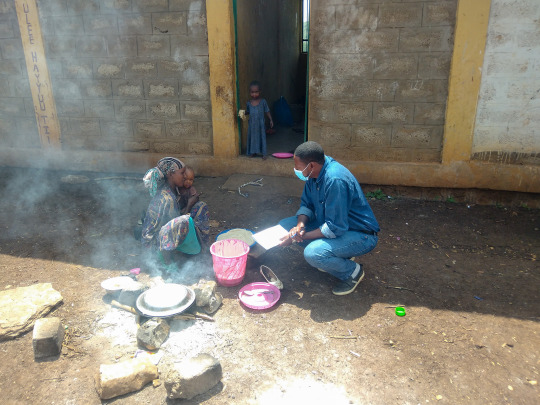
Yomif Worku, National Humanitarian Affairs Officer, UNOCHA Ethiopia, Negele Borena, Oromia region
Yomif Worku (37) has always had the ambition to become a humanitarian because of his willingness and passion to support the people in need. Now working as a National Humanitarian Affairs Office for UNOCHA at the sub-office for Southern Ethiopia in Negele Borena, he finds that although field missions can be quite challenging, field missions during the COVID-19 pandemic have been memorable one’s. He calls on the Government for further progress in restoring the dignity of people in risk.
0 notes
Photo

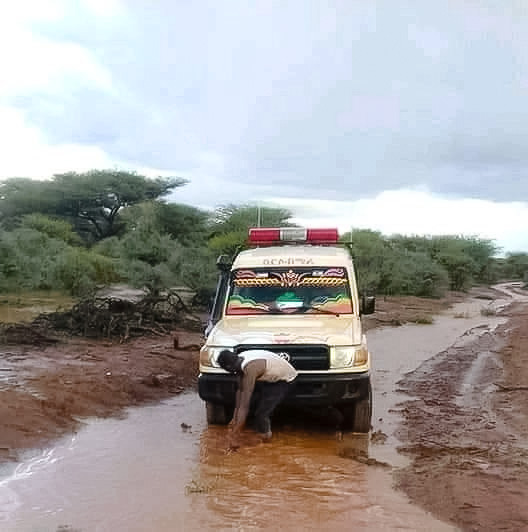
Alexander Dawale, Executive Chairman, Fahma Community Development Organization, Jijiga, Somali region
Born in 1977 during the war between Ethiopia and Somalia, Alexander Dawale (42) grew up in a refugee camp. This life experience as well as the feeling of mercy and compassion when hearing about humanitarian news and when witnessing the lives of the vulnerable, has led Alexander to form Fahma Community Development Organization, a local NGO.
As a humanitarian, Alexander feels strongly about the safety of the people. He recalls an experience during a visit to Gashamo district in Somali region. During a meeting with Gashamo health officials about a local study on drought-induced displacement, news about an ambulance that was driving a pregnant woman getting stuck in the road, came in. He will never forget the fear he felt at that moment, wondering whether the pregnant mother and her baby will survive.
He finds that helping the vulnerable, marginalized and minority populations is the most rewarding part of his work. But funding shortages, especially accessing major funding opportunities like the Ethiopia Humanitarian Fund, challenge his work. He therefore calls on the United Nations to allocate more direct funding to local NGOs.
0 notes
Photo
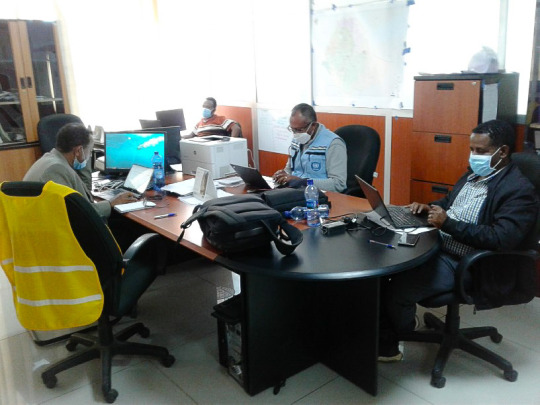
UNICEF and OCHA staff within the Emergency Coordination Center, Addis Ababa
Embedded within the National Disaster Risk Management Commission (NDRMC), the National Emergency Coordination Center (NECC) was established to coordinate the national COVID-19 response. With the NECC coordinating the COVID-19 response at a federal level, regional ECC’s have been established to expand coordination mechanisms for emergency response to a regional level. Several UN agencies and NGO partners surged to the NECC have been working day and night in support of the Government of Ethiopia in their response to COVID-19 and other emergencies. UNOCHA and UNICEF colleagues shown working at the NECC in this picture are but a few of them. Their commitment and hard work to save lives and livelihood is an inspiration for all!
0 notes
Photo

Humanitarian Assessment Team led by Abdikadir Daud, UNOCHA, Somali region
In September 2017, thousands of people fled their homes in Ethiopia’s Somali region after intercommunal clashes broke out. They sought safety and shelter with families in the hard-to-reach Dawa and Liben areas. Their hosts communities generously shared their meagre resources, despite having fallen on hard times themselves, after a series of crippling droughts. To best understand how to respond, a 12-member humanitarian assessment team was dispatched to Dawa and Liben in October.
On their way to the affected communities, the team spent several days driving on poor and flooded roads. But on arrival, they found all roads to the affected communities blocked due to insecurity. The team, led by Abdikadir Daud, with the UN Office for the Coordination of Humanitarian Affairs, decided to enter the town via the River Dawa. The only problem? There were no boats.
The creativity of four enterprising local youths saved the day. They pieced together a make-shift raft out of wood, rope and 20 plastic jerry cans. They offered to swim alongside the contraption to propel it, at a fee of 150 ETB (about $US7) per passenger.
Abdikadir and his team cautiously accepted their offer. “All the risks we were facing came to my mind. I have limited swimming skills…and there were reportedly crocodiles in the river,” he said. “Also, the four swimmers with whom we had entrusted our lives were extremely exhausted, increasing our risk of drowning.”
But they made it across safely, allowing them to carry out their needs assessment and mobilize a response to the displaced people in Dawa and Liben.
1 note
·
View note